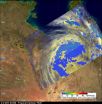(Press-News.org) CORVALLIS, Ore. – Scientists are having a difficult time gauging the recovery of marine species from the Deepwater Horizon oil spill in the Gulf of Mexico because they lack sufficient data about historical population size and the distribution, growth rates and reproduction rates of many species.
In a forum paper published this week in the journal Science, they call for a new research agenda that prioritizes systematic acquisition of baseline data for marine species.
"It is impossible to diagnose whether a species is recovering or floundering if you don't have good data on their status and trends," said Selina Heppell, an Oregon State University fisheries biologist and one of the authors of the article. "Too much of the funding in this country goes toward putting fires out instead of gaining basic biological information, which is what resource managers need to identify and diagnose changes at the population level.
"This is not just about the Gulf of Mexico," Heppell added. "It is a problem for protected species everywhere."
Heppell, lead author Karen Bjorndal from the University of Florida, and eight other authors point to the 1989 Exxon Valdez oil spill in Alaska, where scientists encountered difficulty evaluating the effects on wildlife because of limited data on abundance and demography – the rates of survival, growth and reproduction that are primary indicators of population change.
"Sadly," they wrote, "the situation in the (Gulf of Mexico) is similar more than 20 years later."
Heppell, who is a professor in the Department of Fisheries and Wildlife at Oregon State University, said doing an ecological and biological assessment of all marine species would be difficult and expensive. Therefore, she says, the emphasis should be on those species that are the most endangered, or those that have an economic impact, such as those creatures that interact with important fisheries.
"We spend millions of dollars assessing fish stocks," she said. "If we want to monitor endangered species in the same way, we need to focus resources on the aspects of biology that provide the best information about population recovery. That involves research on demography, not just efforts to count individuals."
In their Science article, the authors describe the assessment of sea turtle populations as a microcosm of the larger issue. Sea turtle populations are monitored almost exclusively by counting nests on beaches, but when those populations increase or decrease, scientists often don't know why because nesting females are such a tiny fraction of the total population. In Florida, the number of loggerhead turtles, for example, increased from 1989-98, then plummeted.
Several factors could have contributed, but a lack of knowledge about age distribution, reproduction rates, mortality rates and other data have made it difficult to determine what triggered the changes – and impossible to create management strategies to deal with them, noted Heppell, who has worked with the National Marine Fisheries Service on turtle conservation issues since 1995.
In contrast, Australian researchers have logged 30 years of demographic data on loggerhead turtles and when a steep decline in their population on the Great Barrier Reef took place in the 1980s and 1990s, they were able to attribute it to predation by foxes on nests and incidental capture in trawl fisheries.
"Both hazards have now been mitigated by government agencies," the authors wrote," resulting in an apparently recovering stock."
The authors list seven elements that should be considered in crafting new research priorities for protected marine species, including sea birds and mammals, as well as turtles:
Integrate demography with abundance trends for the species at all life stages and determine environmental effects on those parameters;
Emphasize analyses of cumulative effects instead of focusing on individual threats such as pollution, bycatch or habitat loss;
Elucidate links among and within populations since oceans have greater movement, genetic exchange and dispersal than terrestrial systems;
Revise permitting processes to allow more rapid and flexible response to environmental concerns;
Encourage data sharing and increase access to data as a prerequisite for funding;
Improve assessment tools for evaluating anthropogenic impacts on populations;
Prioritize investments to focus on long-term population management needs.
"We know that hundreds, possibly thousands, of endangered Kemp's Ridley sea turtles were killed or injured by the Gulf spill," Heppell said. "That species had been recovering rapidly – a great conservation success story. What we don't know, and can't determine with available data, is how detrimental the spill effects will be on that recovery.
"We can use money from the resulting fines to develop a new strategy for monitoring and assessment that can identify the specific causes of population decline and make management more efficient," she added.
Shifting the priorities of federal agencies to focus on research that emphasizes how and why populations change over time is a key, the authors say.
Conclude the authors: "In the wake of the BP oil spill, the need for this policy shift is as clear as it is compelling. If the largest offshore oil spill in U.S. history is not enough to effect this policy shift, what would it take?"
###
Editor's Note: Selina Heppell is doing fieldwork through the end of February, but is available for interviews via telephone, Skype or email. Contact her by email at selina.heppell@oregonstate.edu
Scientists urge new research policies in wake of Gulf disaster
2011-02-04
ELSE PRESS RELEASES FROM THIS DATE:
Oil in Gulf of Mexico: Biologists cite need for critical data to determine ecological consequences
2011-02-04
GAINESVILLE, Fla. — Twenty years after biologists attempted to determine the ecological damages to marine life from the Exxon Valdez oil spill, scientists dealing with the BP disaster find themselves with the same problem: the lack of critical data to determine the ecological consequences of human-induced environmental disasters, a University of Florida researcher said.
Writing in the Feb. 4 issue of the journal Science, Karen A. Bjorndal, a University of Florida biology professor and director of the Archie Carr Center for Sea Turtle Research, and other biologists said ...
New clue to lupus: Failed autoimmune suppression mechanism
2011-02-04
Bar Harbor, Maine — Researchers at Dana-Farber Cancer Institute in Cambridge, Mass., in collaboration with Jackson Laboratory scientists, have identified a regulatory defect that drives lupus.
Correcting the defect "may represent an effective therapeutic approach to systemic lupus erythematosus-like autoimmune disease," the researchers state in their research paper, published in the Proceedings of the National Academy of Sciences. The research team was led by Harvey Cantor, M.D., chair of the department of cancer immunology and AIDS at Dana-Farber, in collaboration with ...
Surprise hidden in Titan's smog: Cirrus-like clouds
2011-02-04
Every day is a bad-air day on Saturn's largest moon, Titan. Blanketed by haze far worse than any smog belched out in Los Angeles, Beijing or even Sherlock Holmes's London, the moon looks like a dirty orange ball. Described once as crude oil without the sulfur, the haze is made of tiny droplets of hydrocarbons with other, more noxious chemicals mixed in. Gunk.
Icky as it may sound, Titan is really the rarest of gems: the only moon in our solar system with an atmosphere worthy of a planet. This atmosphere comes complete with lightning, drizzle and occasionally a big, summer-downpour ...
NASA measuring Tropical Storm Yasi's inland rainfall from space
2011-02-04
Tropical Cyclone Yasi has continued moving through inland Queensland, Australia and has weakened to a tropical depression today. NASA and JAXA's TRMM satellite passed over Yasi as it continued to drop moderate to heavy rainfall.
On February 3 at 0300 UTC (Feb. 2 at 10 p.m. EST/1 p.m. Australia local time) Tropical cyclone Yasi continued over land as a tropical storm. Yasi's maximum sustained winds were near 60 knots (69 mph/111 kmh). It was moving west-southwest near 20 knots/23 mph/37 kmh). It was located about 200 miles (321 km) southwest of Cairns, Australia near ...
OHSU fixes complex heart problems without open-heart surgery
2011-02-04
PORTLAND, Ore. -- The pediatric cardiac team at Oregon Health & Science University Doernbecher Children's Hospital is the first in the region and one of a handful in the nation to implant a pulmonary heart valve without open-heart surgery.
To date, four patients have received the landmark valve in the OHSU Pediatric and Adult Congenital Cardiac Catheterization Lab. All reported immediate improvement in their energy level and stamina.
The device, called the Medtronic Melody® Transcatheter Pulmonary Valve, recently was approved by the Food and Drug Administration. The ...
Cornell researchers find a strong community protects adolescents from risky health behavior
2011-02-04
ITHACA, N.Y. – Growing up poor increases a person's likelihood of health problems as an adult, but a new study led by a Cornell University environmental psychologist shows that being raised in a tight-knit community can help offset this disadvantage of poverty.
The study, "Loosening the Link Between Childhood Poverty and Adolescent Smoking and Obesity : The Protective Effects of Social Capital" published in the January 2011 edition of the peer-reviewed journal Psychological Science, found that poor adolescents who live in communities with more social cohesiveness are ...
Social and emotional learning programs found to boost students' skills
2011-02-04
Being successful in school requires a combination of social, emotional, and academic competencies. A new analysis of more than 200 school-based social and emotional learning programs has found that such programs improve students' attitudes and behaviors, and in some cases, even boost academic performance.
The study appears in the January/February issue of the journal, Child Development. It was conducted by researchers at Loyola University Chicago and the University of Illinois at Chicago.
In the first large-scale meta-analysis of school programs that enhance students' ...
Family mealtimes play a role in health of children with asthma
2011-02-04
The amount of time families spend eating meals together has been linked to the health and well-being of children and teens, with families who eat together regularly reporting declines in substance abuse, eating disorders, and unhealthy weight in their children. Now, a new study that looks at children with asthma has found that the quality of family interactions during mealtime affected the children's health.
The study appears in the January/February issue of the journal, Child Development. It was conducted by researchers at the University of Illinois at Urbana-Champaign, ...
Working more than 20 hours a week in high school found harmful
2011-02-04
Many teens work part-time during the school year, and in the current economic climate, more youths may take jobs to help out with family finances. But caution is advised: Among high school students, working more than 20 hours a week during the school year can lead to academic and behavior problems.
That's the finding of a new study by researchers at the University of Washington, University of Virginia, and Temple University. It appears in the January/February issue of the journal, Child Development.
In a reanalysis of longitudinal data collected in the late 1980s, researchers ...
Children's BMI found to rise the longer their mothers work
2011-02-04
Childhood obesity in the United States has more than tripled in the past three decades, and prior research has linked maternal employment to children's body mass index (BMI), a measure of their weight-for-height. A new study in the January/February issue of the journal Child Development has found that children's BMI rose the more years their mothers worked over their children's lifetimes.
Researchers at American University, Cornell University, and the University of Chicago used longitudinal information from the Study of Early Child Care and Youth Development, which was ...

